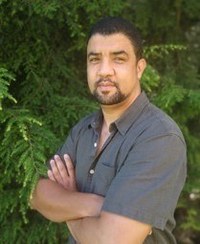This year, the theme for UNESCO’S International Literacy Day is “Literacy and Sustainable Development,” recognizing that literacy is key for sustainable human development. This is also recognized at the High Atlas Foundation, where many of our community-led initiatives work to empower and educate marginalized and rural Moroccans.
In many rural communities, education takes second priority to sustaining livelihoods, particularly during the harvest season when children’s labor becomes indispensible. Its impacts, including decreased school attendance and impaired learning from the earliest stages, all contribute to the perpetuation of the cycle of poverty.
Another barrier to education in rural Moroccan communities stems from the current methods of teaching, which do not take into consideration the connection of social reality and education. Literacy, whether it is reading or numeracy, is embedded in social context and cultural practices beyond the classroom. Required reading material, particularly in rural areas, does not reflect the everyday experience of children and creates disconnect between school and home that discourages students from actively engaging in their learning.
Currently, HAF staff, including Amina Samkane, Malika Kassi, and volunteer Charles Alcorn are working to draft primary school curriculum that will address the disconnect and issues facing schools in rural communities. After meeting with school headmasters and parents of students, HAF staff decided to incorporate creativity in learning and sensibility to the environment in the new curriculum.
Some ways in which the High Atlas Foundation works with communities to combat illiteracy is in the creation of nurseries. High Atlas Foundation works with community leaders, educators, and students to plant community-school tree nurseries that firmly situates the schools within community networks and forges a community culture supportive of education.Project activities, which focus on training rural communities in sustainable, organic agricultural methods, permit households to generate greater income and dissuade children from being pulled from school. A prime example of this is HAF’s Sami’s Project, which was inspired by a young Moroccan boy named Sami, whose short life of struggle against cancer and his love of the outdoors now empowers children to protect their local environment and improve their education and future. Given the precarious environmental situation, measures must be enacted to educate youth and family farmers regarding the environmental impact of current agricultural practices and introduce alternative, sustainable, farming methods. With the creation of nurseries near schools, both students and community members will receive environmental awareness training, specifically in organic, sustainable agricultural methods introduced via the community-school nursery.
The creation of nurseries and subsequent installation of irrigation systems also addresses community needs for clean drinking water. Approximately 70% of rural Moroccans lack piped potable water. Unhealthy drinking water causes frighteningly high infant mortality, shorter life spans, and reduced energy for livelihoods. Furthermore, time spent to procure water adds to the already substantial burden of women and girls and prevents their participation in education. The constructed water and sanitation components provide schools with potable water: improving sanitation, further reducing absenteeism, and generally improving the learning environment.
To provide potable water to villages, HAF and communities establish essential infrastructure – a gravity-flow water system that pipes pure water from distant springs to reservoirs built above villages, from which water runs through distribution systems to public taps near houses, schools and mosques. These projects utilize local building techniques, knowledge and resources, in accordance with HAF’s participatory method. HAF has supported building 19 village-based clean drinking water systems throughout Morocco, and continues to support similar projects: clean drinking water is a priority for HAF, andimproves young girls’ participation in schools.
Women, especially young girls, often face the most barriers to pursuing their education. In rural areas, women are often excluded from community decision-making. Additionally, socio-economic pressure can prevent young girls from attending school, as their help is needed to perform household tasks. In addition, schools are often far from home, and families do not have the economic resources to pay for transportation. Thus, young women are most often denied the right to education. The Bernard Mejean Scholarship Fund for Girl’s Education specifically targets this issue. Created in memory of Bernard Mejean, his brother Bruno began a fund for under-privileged female youth in Morocco.
Encouraging children to promote their interests in education, and socio-economic community development and environmental conservation, through the participatory approach, empowers children and youth to become proactive agents in their community and exposes them to democratic processes and decision-making. HAF’s projects actively include students in community meetings related to the planting and care of the nurseries, which reinforce children being considered as stakeholders, assets, and advocates within the community. The long-term impact of HAF’s community-led projects breaks the poverty cycle, lifting students out of poverty and provides communities and students with the technical expertise to ameliorate income levels via green development. Literacy and development are intricately linked, as seen in many of our projects and initiatives. Clean drinking water, sustainable agriculture, and access to education are all connected, and by supporting literacy, we aid both human development and the environment.




